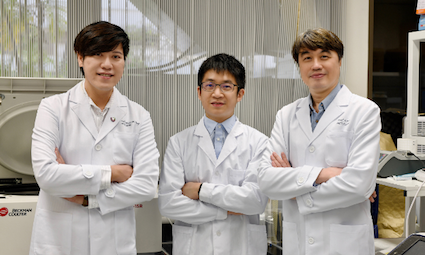
image credit- CUHK
A new study conducted by The Chinese University of Hong Kong’s (CUHK) Faculty of Medicine (CU Medicine) has discovered that a novel phenomenon, “macrophage to neuron-like cell transition” (MNT), generates pain sensory neurons in the microenvironment of lung cancer and leads to cancer pain, representing a precision therapeutic target for primary cancer pain.
MNT is commonly detected in patient specimens including lung, kidney and liver cancer. Importantly, the research team confirmed that MNT in mice could cause and promote pain, revealing its importance in cancer pain.
They further demonstrated that genetic deletion or pharmaceutical inhibition of macrophage Smad3 effectively reduced cancer-associated neurons and the sensation of pain in mice. MNT may therefore represent a precision therapeutic target for primary cancer pain.
Chairman of the Department of Anatomical and Cellular Pathology, Professor To Ka-fai said, “Cancer pain is still an unsolved clinical problem in patients with advanced cancer. Their severe, intractable pain can directly lead to tragic outcomes. The discovery of MNT could put an end to the sorrow of cancer patients and their families soon.”
Image caption- Research team members include (from left) Assistant Professor Professor Patrick Tang Ming-kuen, Postdoctoral Fellow Dr Philip Tang Chiu-tsun and Department Chairman Professor To Ka-fai in the Department of Anatomical and Cellular Pathology.




